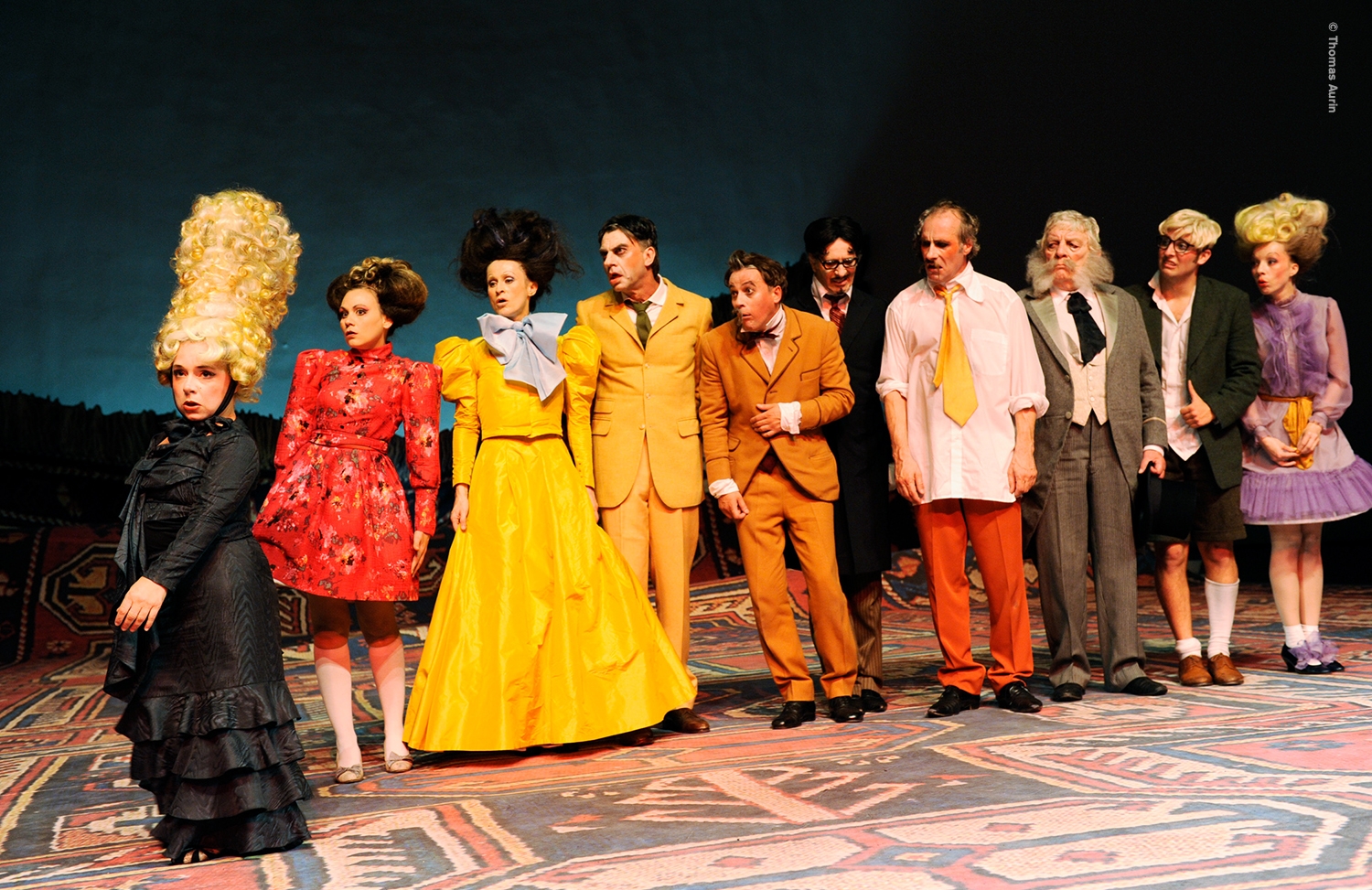


“One cannot but laugh at such sad zoology”, wrote a critic after the premiere of “Geschichten aus dem Wiener Wald” in Berlin in 1931. Tales of marginal people, the fallen middle class, people in a social no-man’s land and with a strong family ideology – Ödön von Horvath wrote about these tragicomic attempts at survival in the late 1920’s, a time of major economic crisis, of pauperisation, in which many people, deprived of a social function or position and effectively having become redundant after WWI became a ready constituency for the Nazis. The social developments of the 20’s seem astonishingly contemporary today. Horvath wrote this play between Berlin and Vienna. Vienna shapes his characters not just by means of their speech, but more particularly by means of their notion of the time they have or take, their fatalism, their placid nature, and the fact that in any event they’d rather omit than commit. A popular play written in opposition to the Viennese popular play genre, “Tales of the Vienna Woods” must be contemplated in a geographical and temporal limbo.
With this in mind, stage designer Anna Viebrock conceived appropriate settings for Christoph Marthaler’s staging at the Volksbühne: A farm in old Marzahn, now a Berlin borough, a closed Berlin restaurant and the open lobby of Vienna’s Belaria cinema, where old people sit and only old movies are shown, starring cavalry captains from a life that no longer existed in Vienna even at the end of the 1920s. In fact, even in present-day Berlin people like to think of a transfigured version of the “good old days”, and for some this may mean an imaginary GDR that never was, for others a Prussia they never experienced: it is a form of escapism, considering people do not feel at home in the present, because they are afraid and because they never quite seem to have an active role in life. In Horvath’s other major popular play, “Casimir and Caroline”, people experience a nostalgia for the future, for Zeppelins, roller coasters, for entertainment industries and their imagineering of faraway countries; in “Vienna Woods”, people long for imaginary bygone days, and above all for a national heritage, cultural values and religion. The word “Vienna” can almost always be replaced with the concept of the home country, of a nation and a form of patriotic thought, in a manner that matches almost verbatim the content of the current manifestos of Germany’s National Democratic Party and other radical right wing organisations. Essentially, the characters long for death without knowing it, while drinking a lot and having sex or talking about it, spouting meaningless repression gibberish, getting high, moralising and killing a small child. They are parochial people, so that they somehow adapt to all circumstances, resigning themselves, believing in their own cleverness. “Nothing is capable of communicating a feeling of endlessness as much as human stupidity”, wrote Horvath about his play. This is the same stupidity that keeps on preventing us from evaluating our own situation. By lying to oneself, one can handle it – for a time. One can even adhere to a diffuse kind of public spiritedness in which everyone else must be wished away as being a potential competitor. “The confused sentences spoken by his characters frighten me; the models of evil, helplessness, disorientation in a certain society …”, wrote Peter Handke in 1968 about Horvath, whom he liked better than Brecht: “…their unitedness based on spiteful contempt, their narrow, loving solidarity due to the cementing putty of reciprocal disdain.”
With: Josef Ostendorf, Bettina Stucky, Ueli Jäggi, Stefan Kurt, Matthias Matschke, Marc Hosemann, Thomas Wodianka, Rosemarie Bärhold, Hildegard Alex, Katja Kolm, Susanne Düllmann and Clemens Sienknecht.
Directed by: Christoph Marthaler.
Staged by: Anna Viebrock.
Premiered on 30 November 2006 at the Großes Haus.
With: Josef Ostendorf (Zauberkönig), Bettina Stucky (Marianne), Ueli Jäggi (Oskar), Stefan Kurt (Alfred), Katja Kolm (Valerie), Matthias Matschke (Rittmeister), Marc Hosemann (Erich), Ulrich Voß (Der Mister), Thomas Wodianka (Havlitschek), Rosemarie Bärhold (Eine Kinobesucherin), Hildegard Alex (Die Mutter), Silvia Fenz (Die Großmutter) and Clemens Sienknecht (Piano / Conférencier)
Director: Christoph Marthaler
Stage Designer: Anna Viebrock
Costumes: Dorothee Curio
Light Design: Henning Streck
Dramaturgy: Stefanie Carp